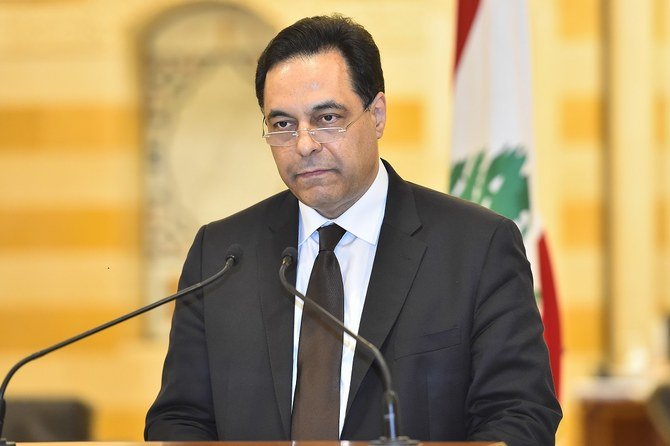
- ARAB NEWS
- 15 Jul 2025

Lebanon is in turmoil after last Tuesday’s horrific explosion at Beirut’s port, which shattered most of the capital and left more than 200 people dead and thousands injured. The devastation came after months of political and economic ordeals brought the country to its knees. With last week’s explosion, the Lebanese state was dealt a potentially lethal blow and, without outside help, its survival is very much in doubt.
Negligence is most likely the cause of the explosion, but without a transparent and independent inquiry the people of Lebanon will not be satisfied. The catastrophe has become a symbol of decades of official corruption underlining a failing political system. No wonder that protests, often violent, have erupted and made renewed calls for the sacking of the ruling elite. On Monday, the Hezbollah-backed government of Hassan Diab was forced to resign, most likely because of foreign pressure. What happens next in terms of finding a suitable replacement for Diab — i.e., a Sunni bureaucrat who is not tainted or influenced by local players — will determine the country’s future.
Foreign assistance is conditional and the burden of moving away from the political status quo that has besieged the country for more than three decades will fall on the ruling elite. Ironically, this ruling class both poses a problem and offers a solution for Lebanon’s calamity. The path toward ending the sectarian-based power-sharing deal will not be easy. Hezbollah holds a monopoly over Lebanon’s political dynamics. Over the years, it has become a state within a state, refusing to disarm or amalgamate its militia into the national army, while dictating its own pro-Iran agenda both locally and externally. Hezbollah has become a liability for Lebanon and the country is paying the price for its policies.
But that is not to say that other sectarian-based political players are blameless. For years, former warlords have maintained a corrupt system of power-sharing that has benefited the few at the expense of millions. The question now is can Lebanon survive? The immediate demand is for accountability and that will not happen without an independent and transparent inquiry. Lebanon needs international assistance, but that is linked to political and economic reforms. With the government having resigned, it now appears that a constitutional battle will ensue in order to pass a new election law — with or without the current legislature. A vast majority of Lebanese want an early legislative election under a non-sectarian election law: A goal now shared by both France and the US. This will be a major game changer for Lebanon and it is almost certain that the ruling political class will do its utmost to resist it.
With the government having resigned, it now appears that a constitutional battle will ensue in order to pass a new election law
Osama Al-Sharif
The task now is to convince Hezbollah to accept the terms of a new political setup, under which its grip of the political reins must end. Failing to reach a new deal will open the doors to dangerous scenarios, such as a possible military takeover, civil war or de facto partition.
Hezbollah will resist any changes to the political status quo, but its options are limited. It is now facing an existential decision: Either accept stern foreign terms for badly needed international assistance or risk facing the responsibility for pushing the country to the brink. There will not be a repeat of what happened on May 7, 2008, when Hezbollah and its allies sent fighters to occupy key parts of Beirut after the government tried to undercut the party’s control over the airport and telecommunications sector. Any new political/social contract will likely spell the end of the Hezbollah-Free Patriotic Movement alliance that has crippled Lebanon for years under President Michel Aoun.
The resignation of the Diab government presents both an opportunity and a challenge for Lebanon. The current impasse is untenable and the political elite will have to make key compromises to rescue what is left of the country.
The coming weeks will determine if Lebanon’s ruling class has the will to agree a new social contract that will replace the sectarian arrangement that has led to this dark moment in the country’s history. Last week’s explosion means only a consensus among the ruling elite can now save the country. The international community will lend help for now, but it will demand that a new deal is reached among the Lebanese.
Hezbollah’s agenda has, by its own admission, put Iran and its goals in the region above those of Lebanon. That is the sad reality the country faces, but the time for reckoning has come and the party must choose carefully. It has little choice but to back a new deal that would chart a fresh course for Lebanon away from narrow sectarian interests. Failing to do that would lead to chaos and civil strife. Lebanon today is at a crucial crossroads.